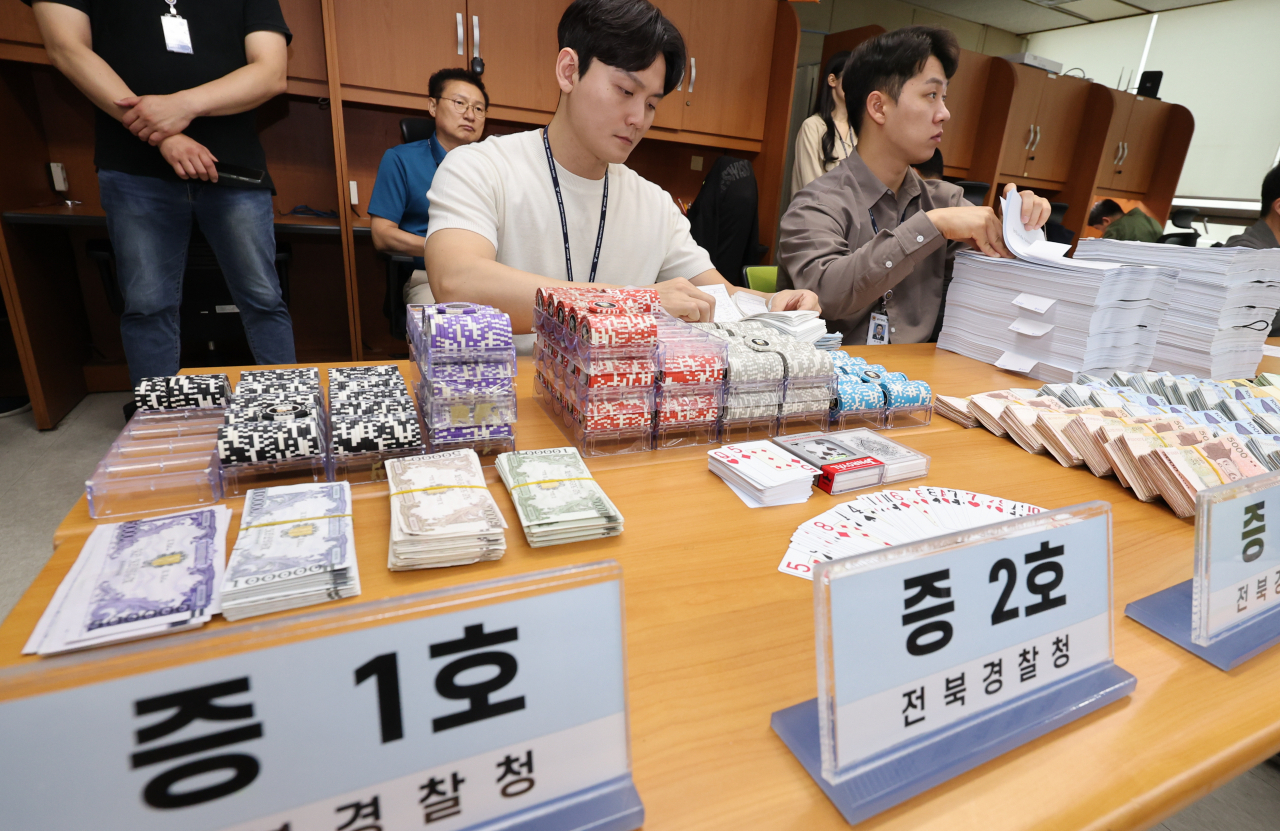
Officers of the Jeonbuk Provincial Police Agency show evidence related to their recent raid of a pub in Jeonju, North Jeolla Province, which is suspected of providing illegal gambling. (Newsis)
An owner of a family-run pub suspected of providing illegal gambling has been arrested, police said Thursday, with 110 people suspected of operating the business or gambling there also being placed under investigation.
The Jeonbuk Provincial Police Agency recently raided one of the poker-themed bars — locally called a “hold ’em pub” — in Jeonju, North Jeolla Province, which is suspected of running a secret gambling business. The owner has been placed under arrest for possible violation of Article 247 of the Criminal Act, which stipulates that setting up gambling establishments is punishable by up to five years in prison or a 30 million won ($21,600) fine.
South Korean law bans any gambling by its citizens or within its borders, aside from a few designated establishments granted an exception by the authorities.
The hold’ em pub in question was in operation between August of last year and May of this year, and its operators are believed to have pocketed 120 million won in commissions while exchanging chips for cash. The owner’s children participated in the pub’s operation, and are among those under investigation.
Police seized 52-million-won worth of cash and gift certificates in the raid. Investigators believe that over a billion won had changed hands through illegal gambling at the pub.
“Hold ’em pub” refers to a bar that provides casino-type games for fun, with chips given to guests upon entry. But some local hold ’em pubs function as pseudo-casinos, providing benefits or even cash to the guests in exchange for the chips they won.
South Korea recently revised the law to add a clause to address what it calls “pseudo-casino operations.” Article 26 of the Tourism Promotion Act states that a business “where a non-casino operator provides casino business to grant financial benefit to a certain user while inflicting financial deficit on others” can be defined as a casino-like operation.